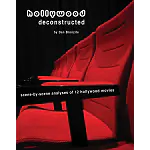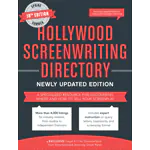Tag: screenwriting software
Script Studio® Screenwriting Software App Wins Xojo Design Award
May 1, 2019 (London, UK) – UK technology company Nuvotech is awarded the 2019 Xojo Design Award of “Best Vertical Market App” for its popular creative writing software Script…
Nuvotech Releases Script Studio® Creative Writing Software For Mac & PC
August 28, 2017 (London, UK) – UK technology company Nuvotech announces release of Script Studio® creative writing software. An Innovative Mac & Windows Program For Screenwriters, Playwrights and Novelists.…
Write Movies, Save Lives – Nuvotech Sponsors START Animal Rescue
Everyday thousands of pets are killed in Southern and Central California shelters. START (Shelter Transport Animal Rescue Team) was formed to address the issues of overpopulation by providing…
Nuvotech Releases New Reference Plugins For Movie Outline 3
4 December, 2012 (London, UK) — UK technology company Nuvotech today launched six new Reference Plugins Movie Breakdowns for its popular screenwriting software Movie Outline 3. Hollywood Hits Plugins…
Avoid Coincidence In Storytelling
Constructing an original, entertaining and intelligent plot is hard work, but that should not mean you should settle for the easy option when writing a screenplay. In fact, the…
Be Bold With Your Screenwriting
Every screenwriter wants to create an original, entertaining and memorable movie but that goal is often hard to achieve. There is no magic formula, no matter what anybody says. …
Structure Vs Free-Form Script Writing
Screenwriters, novice and pro, will inevitably have their own contrasting methodologies for writing a screenplay and you will often hear conflicting rules to adhere to from prominent screenwriting gurus…
Nuvotech’s Creative Writing Software Now Available from Best Buy and Amazon in Canada
UK technology company Nuvotech today announced the availability of their popular creative writing software Movie Outline 3 and Script It! to Canadian customers through Best Buy's Canadian online store.…
Nuvotech teams with the Dysfunctional Screenwriters Society
PHILADELPHIA, PA – The Dysfunctional Screenwriters Society has teamed with UK technology company Nuvotech, publisher of popular screenwriting software Movie Outline 3, to award winners of Power of the…
Pacing is Often the Key to a Successful Screenplay
To help you understand story pacing and how to write a script that keeps the reader turning the page it may help to think of your screenplay as a…



